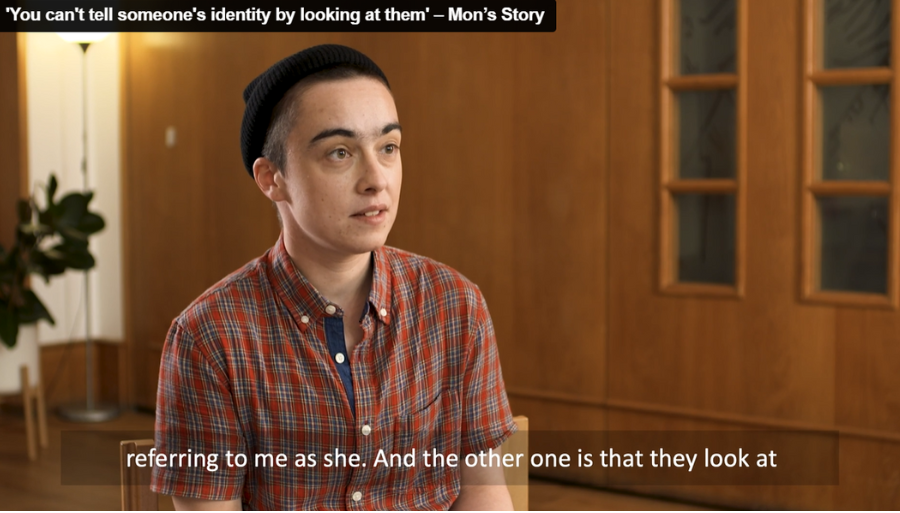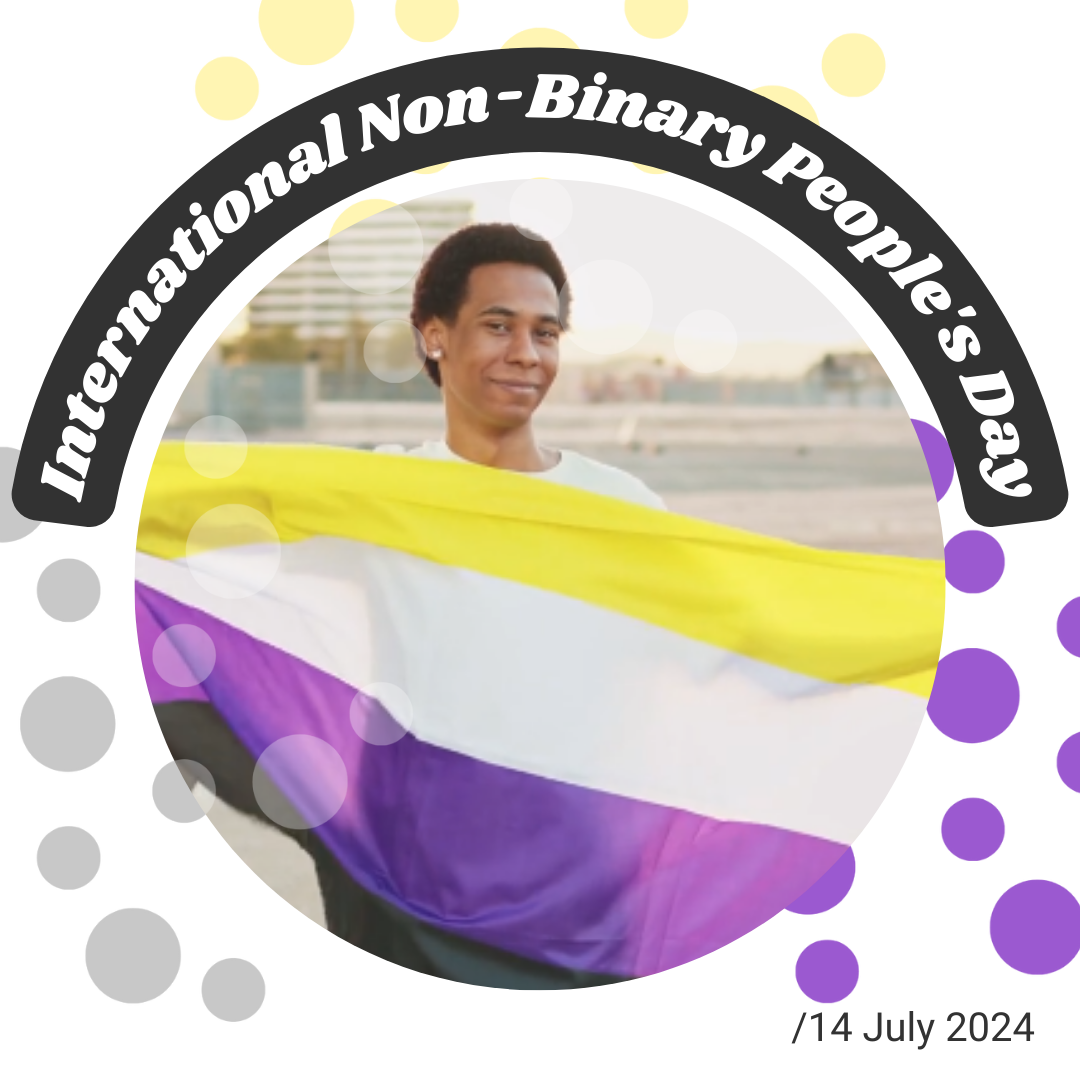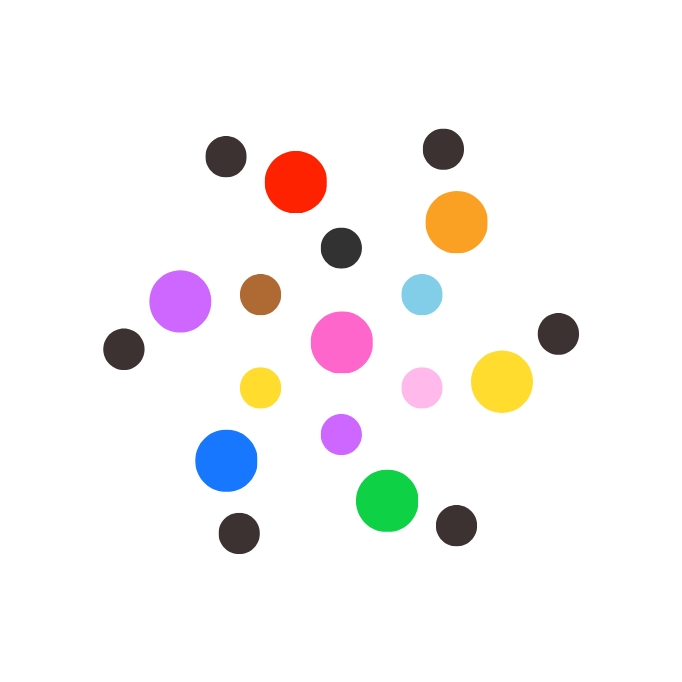On International Non-Binary People’s Day, we recognise and celebrate the experiences of non-binary individuals.
At Diversity Role Models, we are proud to share the stories of two of our volunteer Role Models, Kim and Mon, who share their journeys to help educate others.
Kim's Story: "If you have a choice on how to treat someone, be kind."
Kim’s story is about resilience and self-discovery. From an early age, Kim had a feeling about how they wanted to present themselves, though it took a while for them to navigate this journey.
"The one thing that was quite difficult, sometimes, was when I’d meet some other kids, and they’d ask me at some point, are you a boy or a girl? And I didn’t know what to answer, because either answer felt like lying."

Kim faced verbal and physical bullying but remained committed to their path.
"I used to get called ‘tranny’ and ‘he-she’, but also there was a lot of really physical bullying, I used to get beaten up on the school field about once a week."
Despite these challenges, Kim found the courage to come out to their parents twice—first as gay, and later as non-binary.
"So that went quite well, and supportive reactions from everyone, and in fact so supportive, it went so well, that I had the confidence a couple of years later to then come out to everyone, to say, Actually, y’know, I’m also trans. I’m non-binary."
Kim's story highlights that they had a sense of who they were deep-down all along.
"Turns out, when the kids were asking me in primary school Are you a boy or a girl?, the answer was No."
Mon's Story: "You can't tell someone's identity by looking at them."
Mon’s journey illustrates the significance of language and self-exploration. Growing up, Mon encountered negative attitudes toward anything non-heteronormative.

"The attitudes towards anything that wasn’t straight normative was so negative, you know, the portrayal in the media, the, you know, the banter that you heard in school corridors, you know, was so disgusting."
Finding the right language was transformative for Mon.
"I was finally given access to language that allowed me to explore gender more freely and more consciously. I was suddenly given this language to describe myself, to explore myself, to explore, with all the unspoken issues I had around gender."
Mon spent years understanding their identity and overcoming societal stigma.
"It took me roughly 10 years since then, to kind of come to terms with the terminology, and to kind of get over this stigma that is associated with being non-binary or trans and to use the terms in a way that I feel comfortable with."
Mon’s story emphasises that identity is fluid and cannot be judged by appearances.
"Labels that you used as a young person, you know, may no longer apply to you when you're in your 30s or 40s. Similarly, you cannot tell someone’s identity just by looking at them. I get misgendered all the time. I get mislabelled all the time. You can’t tell unless you ask."

My identity may not be necessarily fixed, but it doesn’t need fixing.


Educational Resources
Kim and Mon’s stories are featured in our educational videos, which support teaching about embracing differences with an aim of ending bullying. These videos come with additional classroom resources to facilitate discussions and promote understanding and acceptance of people with differences.
Watch Kim's Story and Mon's Story
We invite educators, students, and allies to watch Kim’s Story and Mon’s Story to learn more about their experiences being non-binary and to gain further insights and understanding into treating those who are considered ‘different’. These videos are part of a wider set of educational tools and classroom resources for building empathy and creating inclusive educational environments where young people can be themselves and thrive.
At Diversity Role Models, we harness the power of telling stories – like those by our volunteer Role Models, Kim and Mon, in delivering pioneering educational workshops in schools. By sharing stories of diversity we seek to promote understanding and acceptance of individual differences and end LGBTQ+ bullying in schools
